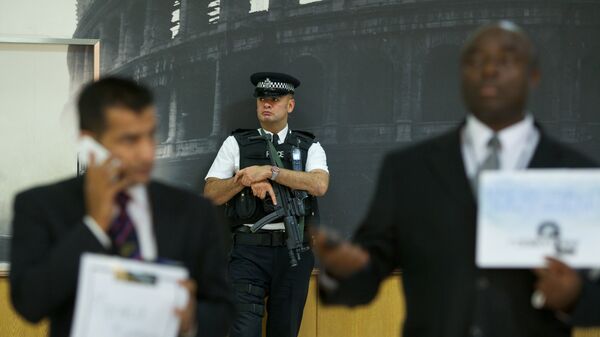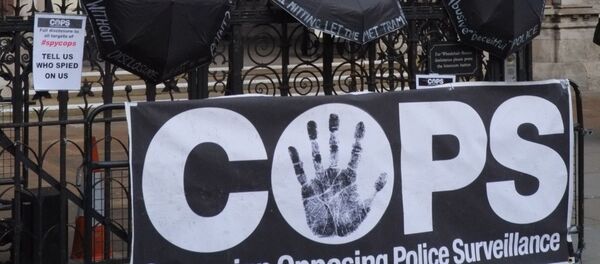The legislation was also criticized by the cross-party joint committee on human rights, which has warned that the legislation could restrict free speech and curb access to information.
The UK Home Office’s spokesperson said on Wednesday that following terrorist attacks and the nerve agent attack in Salisbury, intelligence services and police made the case for an update of existing legislation and some new powers to help meet their operational needs and respond to the evolving threats posed by terrorism and hostile state activity.
Sputnik has discussed the proposed changes to counter-terrorism legislation in the UK with Dr. Katy Vaughan, a lecturer in law at Swansea University who researches and teaches in the area of counter-terrorism law and policy, and human rights. She is also a member of Swansea University’s multidisciplinary Cyberterrorism Project.
Sputnik: In your view, has this new bill done what you have just said or protected the population from terrorism and yet to maintained human rights, or do you have any problems with the bill in terms of the press freedom and human rights that might be affected?
In this regard the main drive is the need to respond to the development and advances in technology.
Now, it is true to say that it’s important our laws are kept under review to ensure that they are responding to advances in technology. But we do already have an existing legislative framework in response to terrorism and terrorist-related activity and I would agree with many except that we don’t need a new range of terrorist-related offenses.
So, that is, in a way, a positive. But that being said, in my view, the bill goes beyond merely updating existing offences and powers and in many respects expands these. So, many aspects the proposals extend the reach of the criminal law and in my view do pose a risk of a disproportionate interference in human rights.
The proposal is that to criminalize viewing terrorist-related material online. The claim is that this addresses a gap in the difference between downloading online material and streaming it, but it’s notably broad and risks criminalizing academic and journalistic research and those with just inquisitive minds.
These proposals [inaudible] to simply view a website, if that website contains material likely to be useful to a terrorist. Second, the bill criminalizes expressions of support for proscribed organizations; this again extends an existing offense and it removes the requirement for intention.
So, there are many aspects of the bill that might concern. Those are some aspects, for me, that are particularly problematic.
Sputnik: It sounds extremely problematic to criminalize viewing of material. Security, obviously they might have some kind of immunity, right? How can you do investigative journalism into these threats if you are not allowed to look at anything without being, perhaps, slapped with some kind of a jail term? What will the punishments be?
Dr. Katy Vaughan: Yeah, and this is a serious issue.
There is a defense of a reasonable excuse, which exists now, but it’s not clear what exactly would amount to a reasonable excuse. And what you were saying about potentially having immunity or even if, as academics or journalists like yourself, you know, we could hopefully easily show that we have a reasonable excuse.
There’s the issue here of the mere fact that that offense exists; are people are going to put themselves through potentially being liable under that offense, even if there is a reasonable excuse? It’s likely that this could have a chilling effect on journalism and the research that you do, and academic research. So this is the issue.
Dr. Katy Vaughan: When the bill was first proposed, it proposed to criminalize the viewing equal at three clicks, so if it was viewed three times, it was clicked on three times.
Unfortunately, as the bill has gone through parliamentary passage, there has been an amendment that this will now involve one click which is, I agree, concerning. Then also the issue is how do you police it? I am not entirely sure of how the government intends to police this.
Views and opinions expressed in this article are those of Dr. Katy Vaughan and do not necessarily reflect those of Sputnik.








